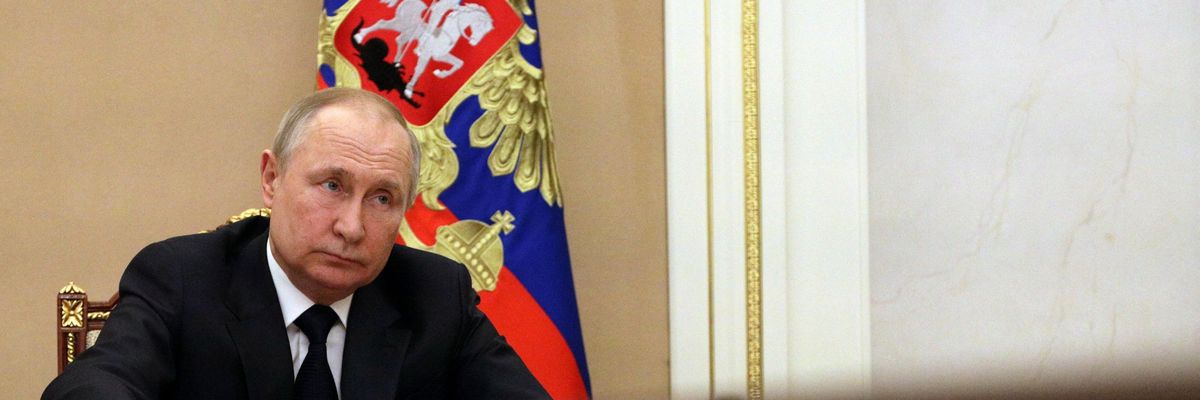Russia has long been a dangerous place for independent journalists. But in the past week, President Vladimir Putin's government has swiftly stamped out any remaining semblance of press freedom, in an attempt to prevent its populace from learning the truth about its brutal invasion of Ukraine.
News websites operated by independent news outlets both domestically and abroad were censored on a large scale so that they were unreachable by most of Russia's population.
Almost immediately after tanks started rolling across the Ukrainian border, Russian government authorities reportedly started issuing ominous edicts to newspapers to stop using certain words and phrases in their reporting. Nobel Peace Prize winner Dmitry Muratov, who runs the Russian newspaper Novaya Gazeta, told The New Yorker on Feb. 28, "We received an order to ban the use of the words 'war,' 'occupation,' 'invasion.'" He continued, "However, we continue to call war, war. We are waiting for the consequences." Many other publications received similar messages.
Putin quickly made these authoritarian "warnings" official policy. As the Washington Post reported, the Russian Parliament passed a new law "banning what it considers 'fake' news about the military, including any rhetoric that calls the invasion of Ukraine an "invasion"--the preferred language is "special military operation"--with a potential 15-year prison sentence."
According to the Committee to Protect Journalists, only four days after the invasion began, five journalists were already facing charges "and dozens more were detained across Russia following their coverage of anti-war protests." An independent newspaper, which put anti-war messages (rough translation: "the madness must be stopped!") on its front page, found its offices raided by government authorities.
On March 1, two television networks which aired criticism of the invasion were reportedly taken off the air. By March 3, journalists from Dozhd, what CNN described as "the last remaining independent news network in Russia" fled the country over fears of their own safety. "After the blocking of Dozhd's website, Dozhd's social media accounts, and the threat against some employees, it is obvious that the personal safety of some of us is at risk," said Dozhd's chief.
The so-called fake news law also forced foreign press outlets like CNN to cease broadcasting in Russia. Bloomberg and BBC stated they would suspend all work inside the country. Columbia Journalism Review has more details about the various outlets that have already started evacuating employees or are considering doing so. The New York Times announced on March 8 it is pulling editorial staff still in Russia.
News websites operated by independent news outlets both domestically and abroad were censored on a large scale so that they were unreachable by most of Russia's population, including Meduza, which is tracking all the sites that have been banned, blocked, or shuttered on its English site.
The broader global information ecosystem has also largely been taken away from Russian citizens looking for accurate information, either by government censorship or companies pulling out of the country voluntarily. As the Times reported:
TikTok and Netflix are suspending their services in the country. Facebook has been blocked. Twitter has been partly blocked, and YouTube's future is in doubt. Apple, Samsung, Microsoft, Oracle, Cisco and others have pulled back or withdrawn entirely from Russia. Even online video games like Minecraft are no longer available.
The Putin regime may crack down on the press and the open web in an attempt to momentarily contain the domestic political crisis its invasion of Ukraine has created, but it comes at great cost to the people of Russia. They need truth and independent reporting more than ever.




